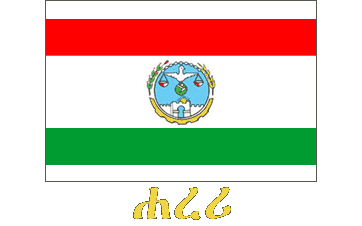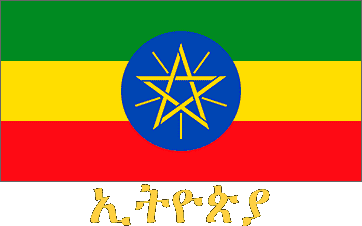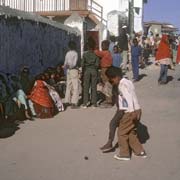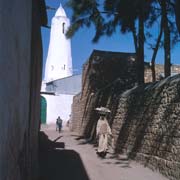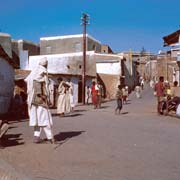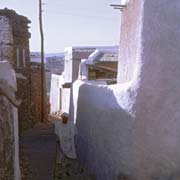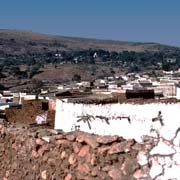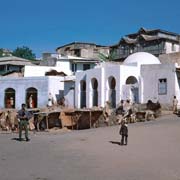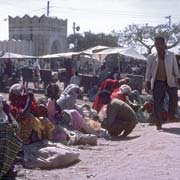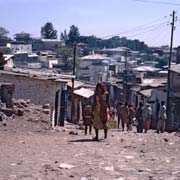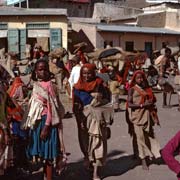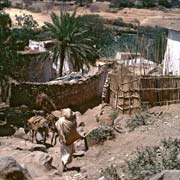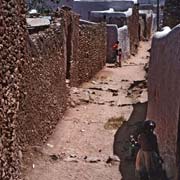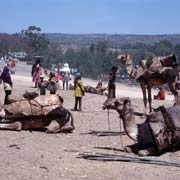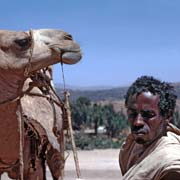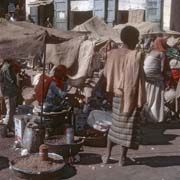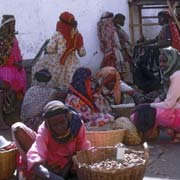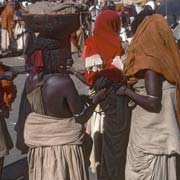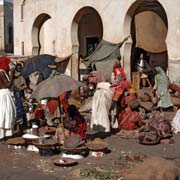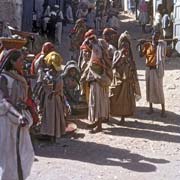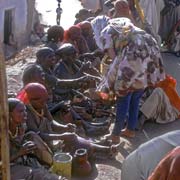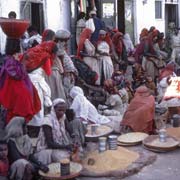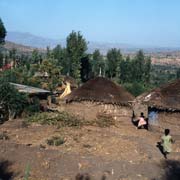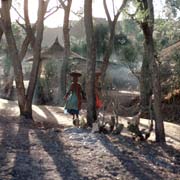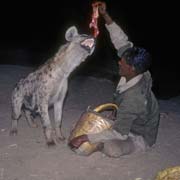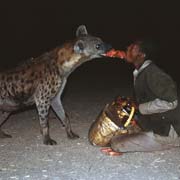Photos of Harar, a historic fortified town, Ethiopia
Harar, a historic fortified town
Harar (also spelt “Harer”) is the capital of the Harari region (its flag is shown at top left), about 540 kilometres to the east of Addis Ababa and situated at an altitude of around 1,885 metres. Called Gey (“the City”) by its inhabitants, it is the trade centre for a coffee, fruit, cereals, and cotton-growing region and has around 125,000 inhabitants.
you may then send it as a postcard if you wish.
There is a military academy, a teacher training institute and an agricultural school. The city is surrounded by a high wall and contains the palace of the governor, an Abyssinian church, and several mosques. A long-standing tradition of feeding meat to hyenas evolved during the 1960s into an impressive night show for tourists.
Harar was probably founded in the 7th Century by Arabs. After 1520 the Somali conqueror Ahmad Gran made it the capital of Adal, a considerable Muslim state, but an invasion by Oromo tribesmen in 1577 brought it to an end. The city remained more or less independent until Egypt occupied it in 1875. The occupation lasted until 1885, and in 1887 it was incorporated into Ethiopia by Emperor Menelik II. A walled city, Harar was long a centre of Islamic learning. The Harari inhabitants of the town are a distinct Ethiopian group who speak a Semitic language but whose written literature is Arabic. Different tribal groups are living in separate quarters and can be recognised by their distinctive dress.
